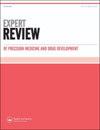肿瘤靶向药物和免疫治疗早期试验的机制和样本量的考虑
IF 1.2
Q4 PHARMACOLOGY & PHARMACY
Expert Review of Precision Medicine and Drug Development
Pub Date : 2021-04-19
DOI:10.1080/23808993.2021.1915693
引用次数: 0
摘要
摘要导读:精准医学正在影响肿瘤学的临床实践和药物开发,促进早期癌症试验设计的显著变化。在设计和实施这类试验时,主办者和临床试验人员面临越来越大的压力,需要在速度和可靠性之间取得适当的平衡,这些试验现在通常在扩展队列中评估活动。涵盖领域:我们讨论与扩展队列和1/2期试验的1期试验的试验设计和样本量相关的方法学问题。我们回顾了相关文献,提出了虚构的案例来说明不同的设计,并讨论了它们的优缺点,重点是随机设计,其中评估了实验处理和对照处理。专家意见:设计具有扩展队列的一期试验需要统计输入和对未来结果解释的明确考虑。目前对随机化在扩展队列和早期试验2期组成部分中的作用的重视不够。由于选择偏倚,单臂队列的结果可能具有误导性,但由于预算限制或伦理争论,比较随机试验在许多情况下可能不可行。随机、非比较性试验,使用对照组来校准历史结果,是单臂扩展队列和随机比较研究之间有趣的中间解决方案。本文章由计算机程序翻译,如有差异,请以英文原文为准。
Considerations on the mechanics and sample sizes for early trials of targeted agents and immunotherapy in oncology
ABSTRACT Introduction: Precision medicine is impacting clinical practice and drug development in oncology, promoting notable changes in the design of early-phase cancer trials. There is increasing pressure on sponsors and clinical trialists to strike the right balance between speed and reliability in the design and implementation of such trials, which now commonly assess activity in expansion cohorts. Areas covered: We discuss methodological issues related to trial design and sample sizes for phase 1 trials with expansion cohorts and phase 1/2 trials. We review the pertinent literature, present fictitious cases to illustrate the different designs, and discuss their advantages and disadvantages, with a focus on randomized designs in which an experimental and a control treatment are assessed. Expert Opinion: Designing a phase 1 trial with expansion cohorts requires statistical input and explicit consideration about interpretation of future results. There is currently insufficient emphasis on the role of randomization in expansion cohorts and phase 2 components of early-phase trials. The results from single-arm cohorts may be misleading due to selection bias, but comparative randomized trials may not be feasible in many cases due to budget constraints or ethical arguments. Randomized, non-comparative trials with a control arm used for calibration of historical results are an interesting intermediate solution between single-arm expansion cohorts and randomized comparative studies.
求助全文
通过发布文献求助,成功后即可免费获取论文全文。
去求助
来源期刊

Expert Review of Precision Medicine and Drug Development
PHARMACOLOGY & PHARMACY-
CiteScore
2.30
自引率
0.00%
发文量
9
期刊介绍:
Expert Review of Precision Medicine and Drug Development publishes primarily review articles covering the development and clinical application of medicine to be used in a personalized therapy setting; in addition, the journal also publishes original research and commentary-style articles. In an era where medicine is recognizing that a one-size-fits-all approach is not always appropriate, it has become necessary to identify patients responsive to treatments and treat patient populations using a tailored approach. Areas covered include: Development and application of drugs targeted to specific genotypes and populations, as well as advanced diagnostic technologies and significant biomarkers that aid in this. Clinical trials and case studies within personalized therapy and drug development. Screening, prediction and prevention of disease, prediction of adverse events, treatment monitoring, effects of metabolomics and microbiomics on treatment. Secondary population research, genome-wide association studies, disease–gene association studies, personal genome technologies. Ethical and cost–benefit issues, the impact to healthcare and business infrastructure, and regulatory issues.
 求助内容:
求助内容: 应助结果提醒方式:
应助结果提醒方式:


